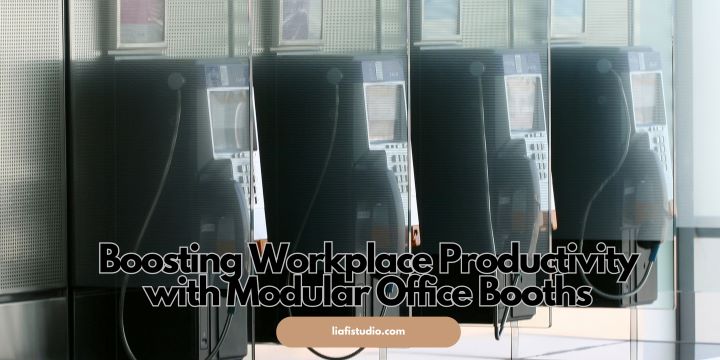In the last decade or so, there have been noticeable changes in the working environment where employees are opting for remote/hybrid jobs. Advances in technology, changing employee expectations, and lessons learned during the recent Covid19 Pandemic has triggered this transformative change. Through this article, we shall delve into the factors propelling employees to opt for remote working or a hybrid setting, and how it enhances both employees and employers.
1. Flexibility and Work-Life Balance
One of the primary reasons why employees are actively seeking remote and hybrid work arrangements is the desire for greater flexibility and improved work-life balance. Traditional 9-to-5 office setups can be rigid and may not align with the diverse needs and responsibilities of today’s workforce. Remote work allows employees to tailor their work schedules to fit their personal lives, whether it’s caring for family members, pursuing hobbies, or simply avoiding the daily commute. This newfound flexibility results in happier, more engaged, and less stressed employees.
2. Increased Productivity
Contrary to some initial concerns, remote work has shown that it can lead to increased productivity for many employees. The absence of office distractions, the ability to create a personalized and comfortable work environment, and the reduction in commuting time often result in employees getting more work done in less time. Many employees find that they can focus better and accomplish tasks more efficiently when working remotely, ultimately benefiting both employees and employers.
3. Access to a Wider Talent Pool
Employers are also recognizing the value of remote and hybrid work arrangements as they gain access to a broader and more diverse talent pool. With geographical constraints removed, companies can tap into a global workforce, giving them the ability to find the best-suited candidates for their job openings. This increased access to talent allows organizations to thrive and grow, contributing to their long-term success.
4. Environmental Benefits
Remote work comes with environmental benefits, as it reduces the need for daily commutes and office space. Fewer people commuting to work translates to reduced traffic congestion and lower carbon emissions, contributing to a more sustainable and eco-friendly world. Companies that adopt remote work as part of their culture can proudly proclaim their commitment to environmental responsibility.
5. Cost Savings
From an employee’s perspective, remote and hybrid work often translates into significant cost savings. Commuting expenses, work attire, and daily lunches can add up over time. By working remotely, employees can save money and allocate their resources more efficiently. For employers, offering remote work can also lead to cost savings by reducing the need for physical office space and associated overhead.
6. Health and Wellbeing
The COVID-19 pandemic highlighted the importance of health and safety in the workplace. Remote and hybrid work arrangements offer employees a sense of security and reduced exposure to health risks. Employees can better protect themselves and their loved ones during health crises, knowing they can work from the safety of their homes. Additionally, remote work allows employees to take better care of their physical and mental health, as they can design their workspaces and schedules to accommodate their individual needs.
7. Improved Work-Life Integration
Work-life integration is a key reason employees actively seek out remote and hybrid work. Rather than strictly dividing work and personal life, these arrangements allow for a more seamless integration. Employees can take short breaks to attend to personal matters or family needs without compromising their productivity. This increased flexibility fosters a healthier and more harmonious work-life balance, resulting in happier and more loyal employees.
8. Empowerment and Autonomy
Remote work empowers employees to take control of their work and demonstrate a high degree of autonomy. Employees have the freedom to manage their own time, set their work priorities, and design their work environment. This empowerment often leads to increased job satisfaction and motivation, as employees feel more in control of their professional lives.
9. Technological Advancements
Advancements in technology have made remote work more accessible and efficient than ever before. High-speed internet, collaborative tools, and communication platforms have bridged the gap between remote workers and their in-office counterparts. With the right technology in place, employees can work seamlessly from anywhere, fostering productivity and collaboration.
10. Enhancing Diversity and Inclusion
Remote and hybrid work arrangements can be instrumental in promoting diversity and inclusion. These arrangements break down geographical barriers and enable people from various backgrounds and locations to join the workforce. By offering flexible work options, companies can create more inclusive and diverse teams, which can lead to increased creativity and innovation.
Key Takeaway
The growing trend of employees actively seeking out remote and hybrid work is a testament to the transformative nature of the modern workplace. From the pursuit of flexibility and work-life balance to the empowerment of employees and environmental benefits, there are numerous reasons for this shift. As technology continues to advance and companies recognize the advantages of remote and hybrid work arrangements, it’s likely that this trend will persist and become an integral part of the future of work.
Both employees and employers stand to benefit from these new work paradigms. It is essential for organizations to adapt to these changes and embrace remote and hybrid work as a means of attracting and retaining top talent, increasing productivity, and fostering a more inclusive and sustainable work environment. As we move forward, it’s evident that remote and hybrid work is not just a trend but a fundamental transformation in the way we work and live.




